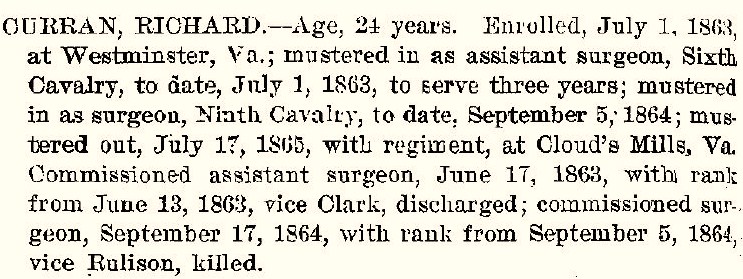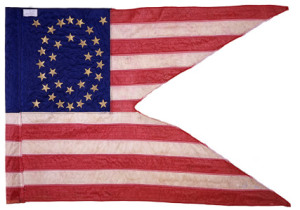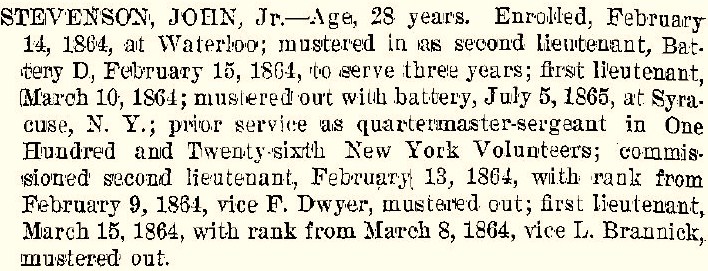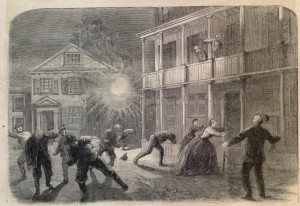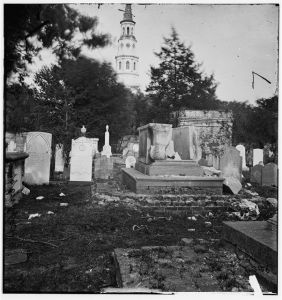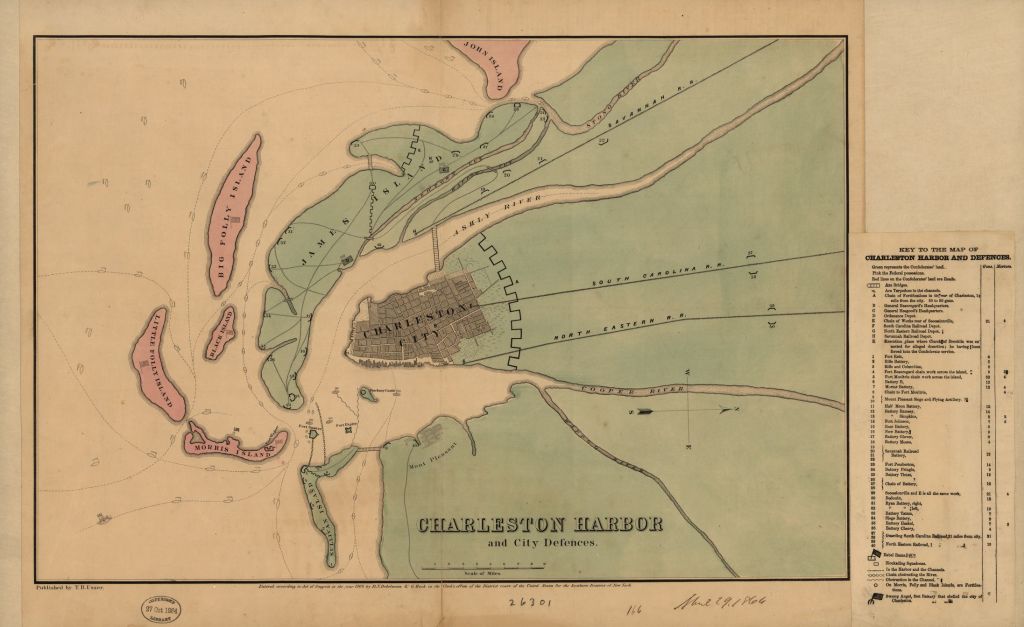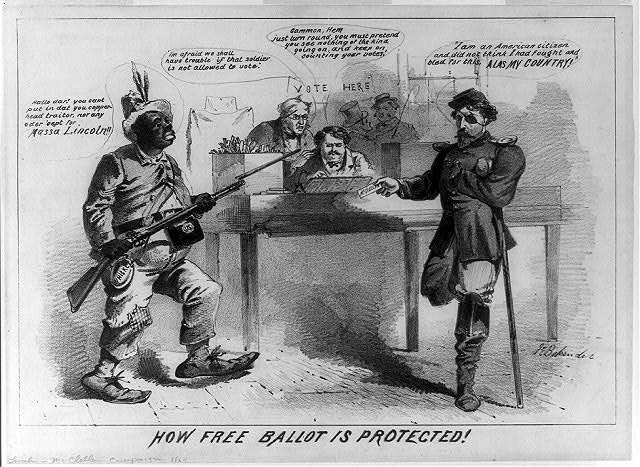[I originally planned to post the following back in March, but was uncertain about the timing. The local newspaper article does seem to have been influenced by the Democrats’ playbook for the 1864 election.]
I am confused about the timing of today’s piece. There was no handwritten date on the following editorial in the big notebook of Civil War clippings at the Seneca Falls, New York public library. It appeared on the same notebook page as the February 1864 article about war costs. The article referred to thousands of soldiers back home to vote, and there were local elections in New York state in March 1864. In fact, one of the questions on ballots in New York state was whether soldiers in the field should have the right to vote. That amendment passed and New York soldiers could vote in the field in November 1864. So would there still have been thousands of soldiers home to vote in the November 1864 election? I think there’s a possibility that the following was published in February or March 1864.
This Democrat editorial contrasts the Utopia that was antebellum America with the great carnage, debt, and taxation caused by the war.
From a Seneca County, New York newspaper in 1864:
The Cost of the War.
“It is not so easy to pay something as it is to pay nothing, and it is easier to pay a large sum than it is to pay a larger one.” This was the precise language used by Abraham Lincoln in his message to the Abolitionist Congress in December 1862. – That silly, trifling language to the people of the U.S., shows his shallowness of mind, and how little he appreciated the awful condition of this country. It was about equal in discretion to the idle boast in one of his ridiculous speeches about the time he was inaugurated, that he intended to show how “a party which can carry an election can also suppress a rebellion.”
That speech was, in his own estimation, about to be verified when he called for 75,000 volunteers to conquer 12,000,0000 men in the fifteen rebellious States. The result of such unpardonable ignorance in the Executive of the Nation, and his Abolition Proclamation, have in his opinion, made it necessary to demand twenty hundred thousand, instead of 75,000 men, and about 250,000 of whom have already been sacrificed to abolition folly; and the bloody graves of tens of thousands of fallen victims are watered by the tears of bereaved relations. This, though horrid to civilized humanity, is only the beginning of the Nation’s woes which must inevitably follow. The sword of war is still whetting for the butchery of thousands more of human beings who must fall by the base and bloody passions of exasperated men. The conflict has been urged on, too, by clergymen and others who profess to be “followers of the gospel of Peace,” and who, like the bigoted priests when they slew the Saviour, seem to be gratified with the sorrow and sufferings which their own bigotry and fanaticism have helped to bring upon a once peaceful and happy country. Those professed Puritans must answer at the bar of God for a large share of immorality, dissipation, and crime, which war will entail upon this and the next generation.
Ours was the only country on earth professing to be civilized, which guaranteed liberty and protection to States without direct taxation. The burdens of government were not felt by the people except in the slight tariff on imported goods, and that benefitted the North at the expense of the South. But now what have we fastened upon us? Instead of a light tariff which then supported our economical government, with a small army and navy, and those scarcely necessary, we are saddled with the largest army and navy on the globe, the salaried officers of which will be loth to lessen their power without a struggle, and many will naturally assimilate with corrupt party zealots to perpetuate military pensions for life, for the tendency of military power is always to perpetuate itself.
And the National debt. This according to the recorded and undisputed statement of the leaders of the Black Republican party at the close of the war will be four thousand millions of dollars! a sum of solid silver sufficient to load ox-teams from Missouri to the eastern borders of Maine. The interest on this debt will at the lowest estimate amount to $200,000,000 which must be levied annually by taxation on the people, and that, too, for generations to come. We now begin to feel the heavy hand of power upon us in every business paper transaction, in every security given by a debtor to his creditor, in the settlement of every deceased person’s estate, whether solvent or insolvent, and in the increased price of all the necessities of life to the poor as well as to the rich. The land tax is deferred merely for the present, because the farmers would feel the crushing weight too keenly, and would enquire what corresponding benefit they derive to support recruiting agents, and furloughed regiments, who are maintained in idleness among us by thousands to vote for abolition candidates for office. But the land tax cannot in the nature of things be much longer postponed. Then the farmers and laboring classes who are always the last to be aroused will enquire, “why are we taxed to prosecute a war for the subjugation and ruin of a large portion of our own country, the utter destruction of their social laws and rights as States, the devastation of one half of our own territory, and then be compelled to garrison that same ruined territory without resources to be derived from it sufficient to pay one fourth of the cost of its occupation? Why are those people who were forced and deceived by their Rulers, to be ruthlessly slaughtered, and their natural attachment to our once glorious Union to be severed, in order to gratify the revenge of Abolition fanatics, and the whims of the ‘smutty joker?‘” These questions and others of equal importance will soon have to be met by those who now push on this suicidal war without allowing one opportunity for conciliation, and who are filling their pockets and the purses of their relatives from the sufferings of an outraged people. **
Once again this Democrat paper seemed to ignore the fact that most the Southern states actually made the decision to secede before Lincoln even took office. This paper seemed to have no objection at all to slavery.
Reference to Abraham Lincoln as the “smutty joker” can be found in the Hand-book of the Democracy 1863 & ’64. near the end of the book in the “Campaign Songs” section:
History of the Rise and Fall of the Irrepressible Conflict.
AIR — “Villikens and his Dinah.“
There was an old joker in Springfield did dwell,
He wandered all over his stories to tell;
He joked irrepressibly by night and by day,
Till his smutty jokes drove decent people
away.
(Spoken — Chorus for the smutty joker
and the Ohio clergymen. )
Ri tu ral, ri tu ral, ri tu ral li da, … [for twelve stanzas]
I’m confused again because the final stanza talks about 1864 Democrat candidate for president George B. McClellan sending the joker back to Springfield. Most of the campaign songs seem to feature General McClellan. There could have been references to the smutty joker before the campaign song was written. Democrats could have added the last stanza after the nomination. Some people might have just assumed General McClellan would be nominated. The Times link in the first paragraph of this post quotes one Democrat soldier as saying he was going to vote for the absentee voting amendment because all the soldiers were going to vote for McClellan.
At any rate, President Lincoln wanted to get the news out that New York soldiers could vote in field:
From The Papers And Writings Of Abraham Lincoln, Volume Seven:
TELEGRAM TO GENERAL MEADE.
EXECUTIVE MANSION, WASHINGTON, March 9, 1864.
MAJOR-GENERAL MEADE, Army of Potomac:
New York City votes ninety-five hundred majority for allowing soldiers to vote, and the rest of the State nearly all on the same side. Tell the soldiers.
A. LINCOLN.
There are many 1864 political cartoons at the Library of Congress, where you can read the details: Columbia; Antietam; the machine

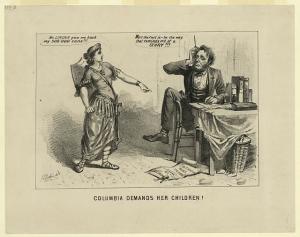
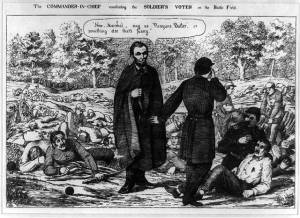
![Running the "machine" (by John Cameron, [New York] : Published by Currier & Ives, 152 Nassau St. N.Y., c1864; LOC: LC-USZ62-9407)](https://www.bluegrayreview.com/wp-content/uploads/2014/10/05000r.jpg)
![The political "Siamese" twins, the offspring of Chicago miscegenation ([New York] : Published by Currier & Ives, 152 Nassau St. New York, c1864.; LOC: LC-USZ62-9733)](https://www.bluegrayreview.com/wp-content/uploads/2014/10/04976r.jpg)
![The Chicago platform and candidate (by Louis Maurer, [New York] : Published by Currier & Ives, 152 Nassau St. N.Y., c1864.; LOC: LC-USZ62-21706)](https://www.bluegrayreview.com/wp-content/uploads/2014/10/04752r.jpg)
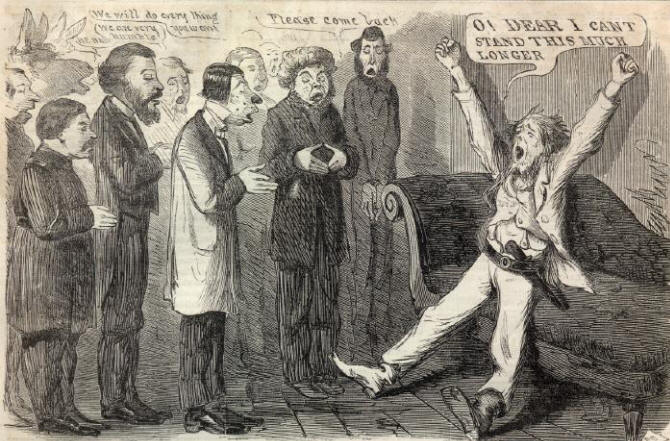
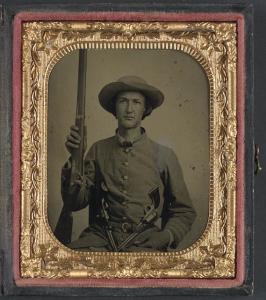
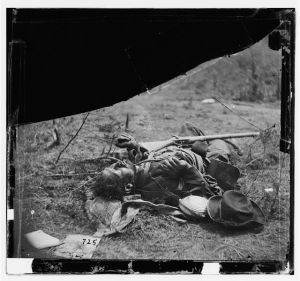
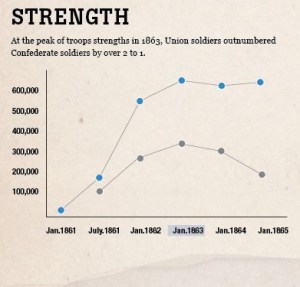
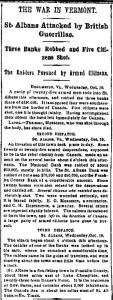
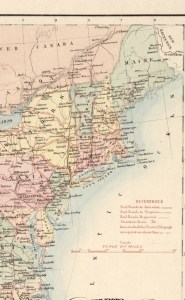
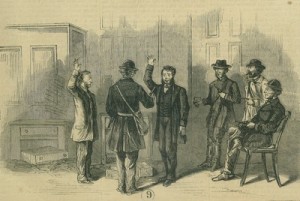
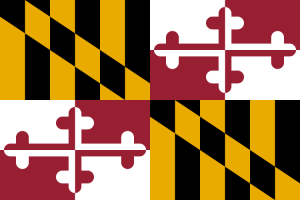
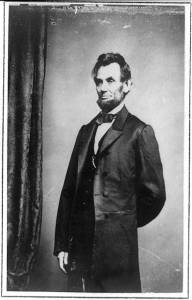
![Civil War envelope showing shaking hands in front of U.S. Constitution with weapon and American flag in back (Philadelphia : King & Baird, printers, 607 Sansom St., [between 1861 and 1865]; LOC: LC-DIG-ppmsca-31974](https://www.bluegrayreview.com/wp-content/uploads/2014/10/31974r.jpg)
